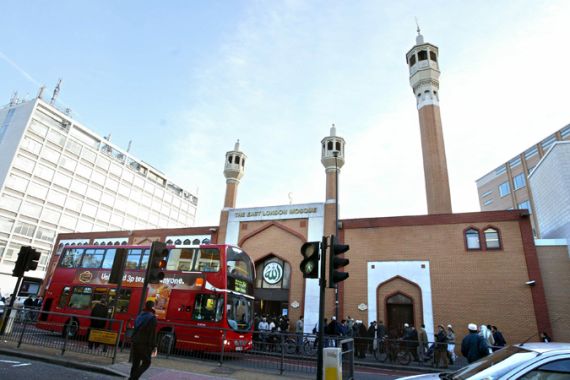‘Integration for us is integration for everyone,’ UK Muslims say
Muslim Council of Britain reframes discussion on integration with new report on Islam and British society.

David Cameron, former UK prime minister, said “integration is a two-way street” after staying with a Muslim family more than a decade ago.
However, the street has since narrowed to one-way traffic. Integration has become a term applied only to Muslims, according to a new report by the Muslim Council of Britain (MCB) titled, Our Shared British Future- Muslims and Integration in the UK.
Keep reading
list of 4 items‘Prejudice, Islamophobia’: Free speech fears as UK redefines extremism
Police investigate if killer targeted women in Sydney mall stabbings
Why Biden’s White House iftar unravelled amid Gaza war
The report, presented in Parliament on Wednesday, features 30 diverse voices from the Muslim community and calls for equal integration for all, with no special burden placed on Muslim communities.
“If any integration policy is to succeed, as the government plans to do in 2018, it needs to be inclusive,” Harun Khan, MCB’s secretary-general, wrote in the report.
“The same goes for ‘British values’, a relatively new term coined after concerns of extremism. Many are worried that such values have been conceived in a knee-jerk fashion because some people are considered ‘not quite British enough’ and therefore must be subject to a civilising mission,” Khan continued.
In the report, MCB – the UK’s largest Muslim umbrella body of more than 500 affiliated organisations, mosques, charities and schools – proposes steps to tackle real challenges to integration that Muslims face such as racism, threats by far-right groups, fair access to employment, housing shortages, and isolation.
More than two million Muslims live in the UK, and account for about 4.8 percent of the population in England and Wales.
Despite claims to the contrary, Muslim communities have become less segregated, according to the latest census, the report noted.
‘Culture of fear’
The council contributed in 2016 to the Casey Review, a government-led report that examines integration and opportunity in isolated, deprived communities, noting for the Muslim community, a “culture of fear is emerging, which is a big driver in preventing a more united and cohesive society”.
Naz Shah, member of parliament for Bradford West, will be chairing the session on Wednesday along with Miqdaad Versi.
Versi was named by the BBC as the “man correcting stories on Muslims”, having prompted more than 50 corrections over the past year, and a half from the national press for false stories about Islam and Muslims.
In the past decade, there has been a “moral panic” around Muslims, Versi wrote.
There is a preconceived notion that Muslims are incapable of integrating into British society, yet when Muslims do enter public life, “too often their motives are questioned and they are accused of ‘entryism’,” Versi said.
One of the problems MCB addresses is the irresponsible reporting about British Muslims that negatively affects the public’s perception of them.
According to research by YouGov done in 2015, a decade after the 7/7 bombings, a majority of Britons stated they view Muslims as a threat to the UK, far more than in the immediate aftermath of the bombings.
The average Briton also overestimates the British Muslim population to be three times larger than it actually is, according to the 2016 report Perceptions are not reality by Ipsos Mori.
More than one-third of schoolchildren believe Muslims are taking over England.
With 64 percent of the British public informing themselves about Islam through the media, “there is little wonder that Muslims are viewed so negatively”, the report noted.